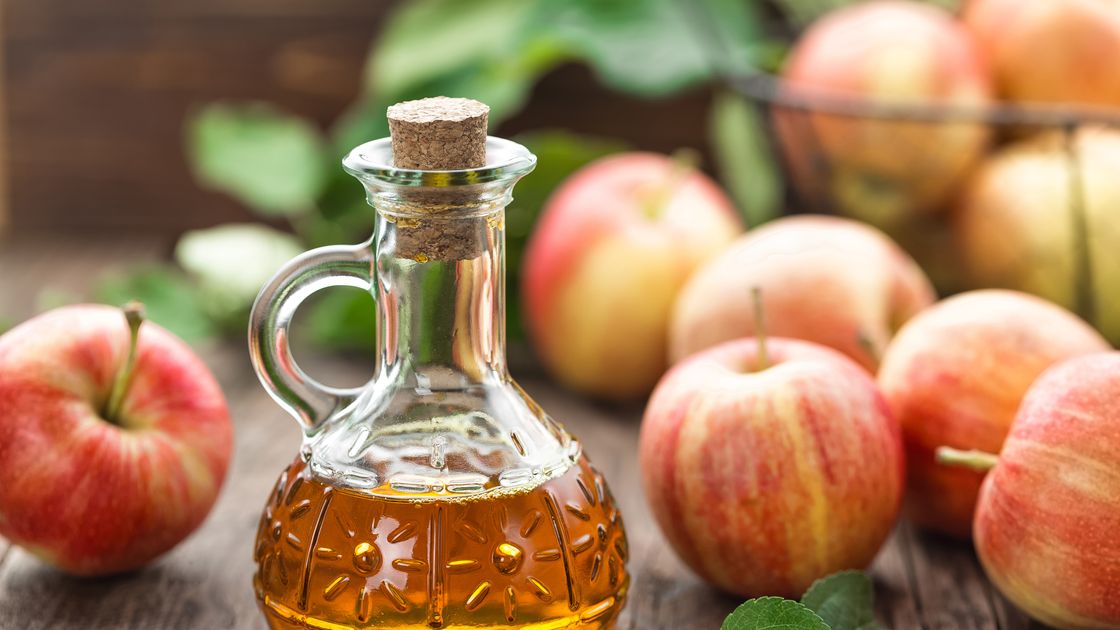Does Apple Cider Vinegar Break a Fast?
Does Apple Cider Vinegar Break a Fast? The answer is no. When partaken in moderation, apple cider vinegar does not break your fast. In fact, it might even enhance the fasting experience. It's important to note that fasting requirements can vary.

In the world of nutrition and wellness, trends come and go, but some concepts stand the test of time. One such trend that has gained considerable attention is fasting, combined with the use of apple cider vinegar. Apple cider vinegar (ACV) has been touted as a potent health elixir with a plethora of benefits, while fasting, in its various forms, has been associated with improved metabolism, weight loss, and overall well-being. But the question arises: does apple cider vinegar break a fast? In this article, we will delve into the world of ACV, fasting, and the potential synergy between the two.
Understanding Apple Cider Vinegar
Apple cider vinegar is a fermented liquid made from crushed apples, sugar, and yeast. The fermentation process produces acetic acid, which gives ACV its characteristic tangy flavor and many of its health-promoting properties. ACV also contains trace amounts of vitamins, minerals, and antioxidants, making it a popular choice for those seeking natural remedies.
Benefits of Apple Cider Vinegar
- Digestive Aid: ACV has been traditionally used to support digestion. The acetic acid in vinegar may help improve the breakdown of food in the stomach and enhance the absorption of nutrients.
- Blood Sugar Regulation: Some studies suggest that ACV might improve insulin sensitivity and lower blood sugar levels after meals, which can be beneficial for individuals with diabetes or those aiming to manage their weight.
- Weight Management: Incorporating ACV into your routine may help with weight management. Some evidence suggests that ACV can increase feelings of fullness and reduce overall calorie intake.
- Heart Health: The antioxidants in ACV, along with its potential to lower blood sugar and improve cholesterol levels, could contribute to heart health.
- Gut Health: The acetic acid and probiotics in ACV may positively influence gut health by promoting the growth of beneficial bacteria.
- Skin and Hair: ACV's antimicrobial properties may benefit skin health, and some people use diluted ACV as a natural hair conditioner.
The Phenomenon of Fasting
Fasting is an ancient practice that involves abstaining from food for a specific period. Various fasting methods exist, ranging from intermittent fasting (IF) to prolonged fasting, each with its unique approach and potential benefits.
Benefits of Fasting
- Weight Loss: Fasting can create a calorie deficit, leading to weight loss. Additionally, fasting may enhance the body's ability to burn fat for energy.
- Metabolic Health: Fasting can improve insulin sensitivity, blood sugar control, and lipid profiles, which are all important markers for metabolic health.
- Cellular Repair: During fasting, cells initiate processes that repair and remove damaged components, contributing to cellular health and longevity.
- Brain Health: Fasting may support brain health by promoting the production of brain-derived neurotrophic factor (BDNF), a protein associated with cognitive function and mood regulation.
- Longevity: Some animal studies suggest that fasting could extend lifespan by triggering protective mechanisms within cells.

Does Apple Cider Vinegar Break a Fast?
The answer is no. When partaken in moderation, apple cider vinegar does not break your fast. In fact, it might even enhance the fasting experience. It's important to note that fasting requirements can vary. Some involve refraining completely from calories, while others allow small amounts. ACV has a minimal calorie count – about three calories per tablespoon, and it doesn't interfere with the body’s metabolic transition from a fed state to a fasted state.
- Minimal Caloric Content: Apple cider vinegar is low in calories, and the calories it provides are negligible. Consuming a small amount of ACV during fasting is unlikely to significantly impact your overall calorie intake.
- Effects on Autophagy: Autophagy is a cellular process that occurs during fasting, aiding in the removal of damaged cells and promoting cellular repair. Some proponents argue that ACV might not interfere with autophagy due to its minimal calorie content and potential to enhance digestion.
- Blood Sugar Response: ACV's potential to regulate blood sugar levels could be advantageous during fasting. Consuming ACV might help stabilize blood sugar levels, especially if you're prone to blood sugar fluctuations.
- Appetite Control: The acetic acid in ACV may help control appetite and increase feelings of fullness, potentially making it easier to adhere to fasting protocols.
In conclusion, consuming a small amount of apple cider vinegar during fasting is unlikely to break the fast in terms of calorie intake. The potential benefits of ACV, such as blood sugar regulation and appetite control, could even complement fasting efforts. However, individual responses may vary, and it's essential to consider your specific fasting goals and consult with a healthcare professional if you have any concerns.
Incorporating Apple Cider Vinegar During Fasting
If you're intrigued by the potential synergy between apple cider vinegar and fasting, here are some tips for incorporating ACV into your fasting routine:
- Dilute It: Mix a tablespoon of apple cider vinegar with a large glass of water. This dilution not only makes it more palatable but also helps protect your tooth enamel from the acidity.
- Timing Matters: If you choose to consume ACV during your fasting window, do so closer to the beginning of the window. This timing might help take advantage of its potential blood sugar-regulating effects.
- Listen to Your Body: Pay attention to how your body responds. If you experience discomfort or negative effects, reconsider its inclusion in your fasting routine.
- Stay Hydrated: Remember that staying hydrated is crucial during fasting. Make sure to drink plenty of water, and consider adding ACV to enhance flavor and potential benefits.
What Else can I Drink While Fasting?
Embarking on a fasting journey doesn't necessarily mean completely abstaining from all consumption. Certain beverages and foods can be included during fasting windows without disrupting the physiological benefits of fasting. Let's explore some options that can be safely consumed while fasting:
- Water: Water is the ultimate hydrator and is always a fasting-friendly choice. Staying adequately hydrated is crucial during fasting, as it helps support bodily functions, regulate body temperature, and maintain energy levels.
- Herbal Teas: Most herbal teas, such as chamomile, peppermint, and ginger tea, are free of calories and artificial additives. They can provide comfort, promote relaxation, and offer various health benefits without interfering with your fasting goals.
- Black Coffee: Plain black coffee, without added sugar, cream, or milk, is another popular option during fasting. Coffee can provide a slight energy boost and may help suppress appetite, making it a suitable choice for those following fasting regimens.
- Green Tea: Green tea contains compounds like catechins and antioxidants that may support metabolism and overall health. Like herbal teas, unsweetened green tea can be enjoyed without disrupting your fast.
- Bone Broth: Bone broth is rich in nutrients and collagen, making it a popular choice among those following fasting plans. It's low in calories and carbohydrates and can help provide a sense of satiety.
- Lemon Water: Adding a squeeze of lemon to your water can enhance its flavor and provide a small amount of vitamin C. Lemon water is typically considered fasting-friendly due to its minimal caloric content.
- Plain Sparkling Water: Unsweetened, plain sparkling water can provide a bubbly and refreshing option during fasting. Be sure to choose varieties without added sweeteners or flavors.
- Fasting-Specific Supplements: Some fasting protocols allow for specific supplements that don't contribute significant calories. These might include branched-chain amino acids (BCAAs) or other amino acid blends designed to support muscle preservation during fasting.
It's important to note that while these options are generally considered fasting-friendly, individual responses can vary. Some people might find that consuming certain beverages or foods triggers hunger or disrupts their fasting experience. If you're new to fasting or have specific health conditions, it's advisable to consult a healthcare professional before introducing any new elements into your fasting routine.
The Bottom Line
Apple cider vinegar and fasting each have their unique benefits and potential to promote overall health. Incorporating a small amount of ACV during fasting is unlikely to break the fast in terms of calorie intake and may even offer additional advantages like blood sugar regulation and appetite control. As with any dietary changes, individual responses can vary, so it's essential to listen to your body and consult with a healthcare professional if you have any concerns. Remember that sustainable health practices encompass a well-rounded approach that considers your overall lifestyle, dietary choices, and specific goals.